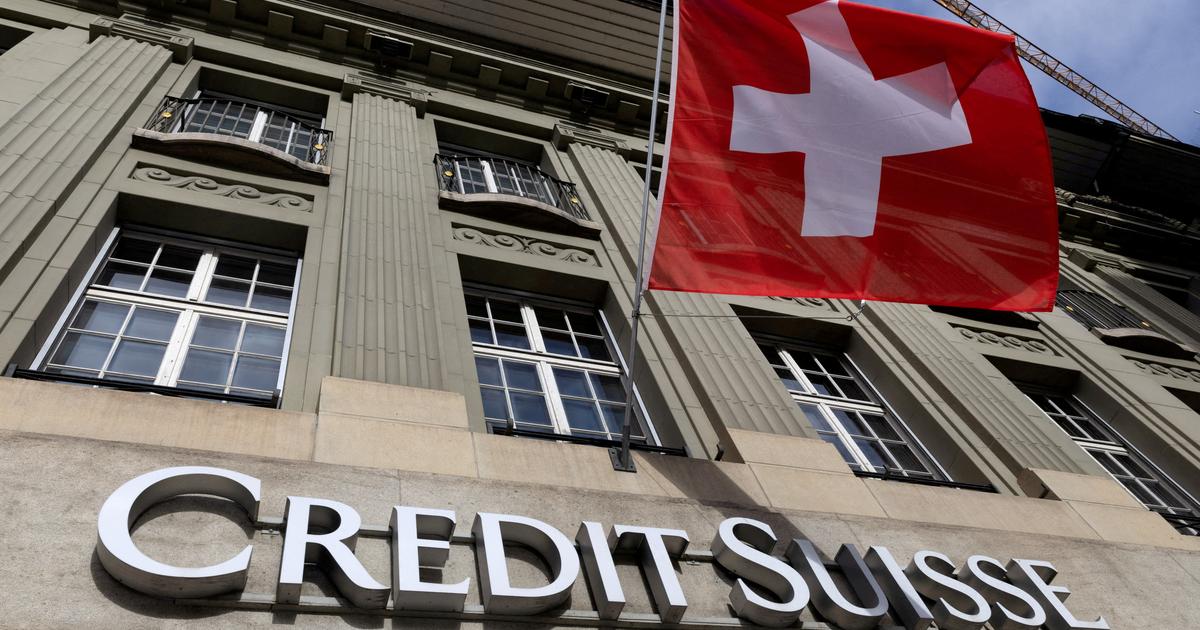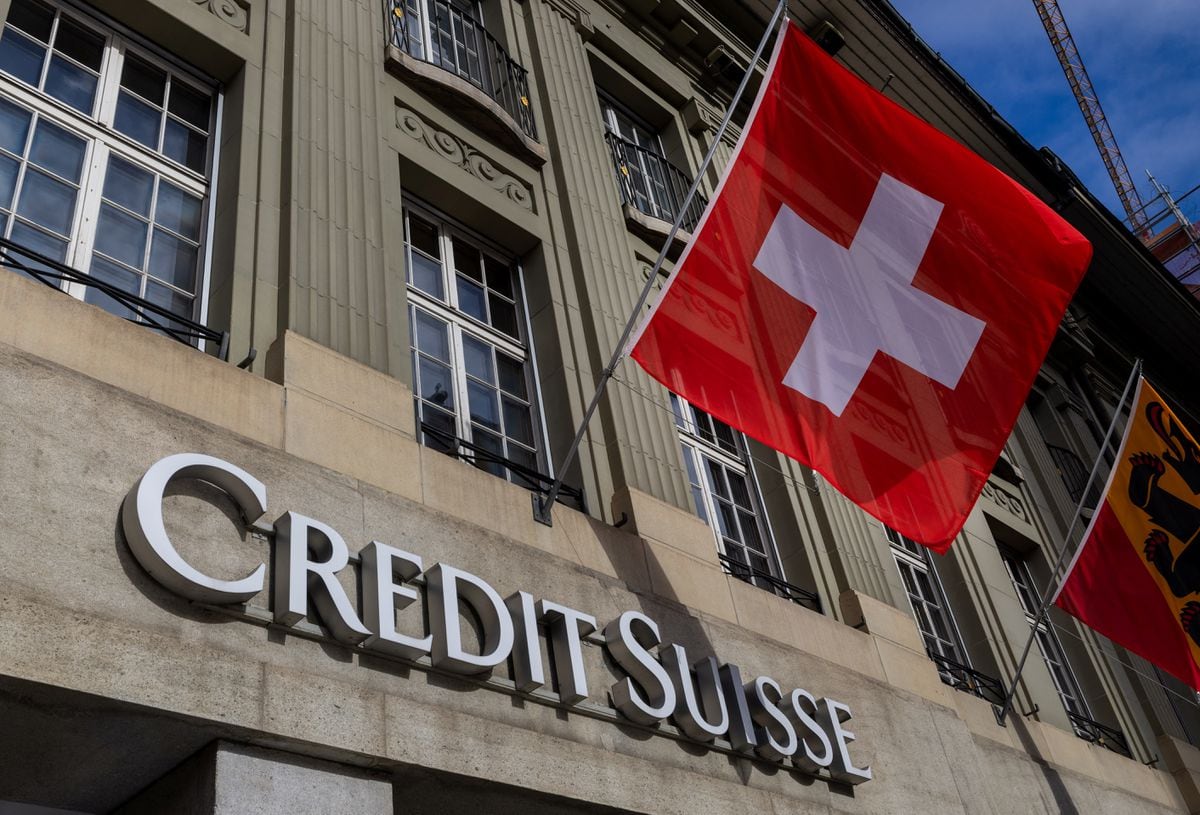Credit Suisse has become radioactive material.
The Saudi National Bank (SNB), its main shareholder - owns 9.88% of the firm - this week refused to put even one more franc on the table to grow its capital, and investors have continued this Friday to get rid of their titles despite the multimillion-dollar bailout of the Swiss National Bank, with falls of 8.01% at the end of the session that have dragged the European indices into the red.
For this reason, the name of UBS, the largest bank in the country, is now coming to the fore as a possible solution: according to the Financial Times, the entity, valued on the Stock Market at 56,000 million —seven times more than Credit Suisse—, is exploring the purchase of your competitor or a part of his business.
This weekend will be decisive:
their management teams will meet separately to see if it is feasible.
The news comes hours after the Bloomberg agency cooled that possibility.
Years of sharp declines in the stock market have left the price of Credit Suisse at rock bottom.
Especially after the brutal setback this week, where more than a quarter of its value has vanished, and its capitalization is around 8,000 million euros.
Despite this, it does not seem that the sector considers it a bargain;
it has been the pressure of the Swiss authorities to stop the crisis and contain the reputational damage to the banks of their country that has pushed UBS, according to the FT, to study the acquisition.
The succession of scandals, fines and bad decisions that have led Credit Suisse to write down heavy losses in its business (more than 7,000 million last year), request more resources in capital increases and reduce its size through layoffs, makes in the banking industry it is feared that it keeps more dead in the closet yet to come out.
In this context, UBS does not rule out participating in a merger operation, even in the midst of the US regional banking crisis, and when doubts are spreading over the entire sector.
Initially, this risk is unnecessary for it to grow: the reputational damage that Credit Suisse is suffering is causing a transfer of clients to UBS without the latter having to lift a finger.
However, on the side of the arguments favorable to the purchase, a worsening of its rival's crisis to a point of no return could also penalize it for its effects on the banking system, and above all on the credibility of Swiss entities.
Credit Suisse received historic support from the Swiss National Bank on Thursday, from which it will borrow up to 50,000 million euros.
The injection will allow you to repurchase debt for which you paid higher interest and therefore save good money, but although it gives you some air in the short term, it does not solve your problems.
To raise a bank in low hours it is necessary, sometimes, much more than providing it with liquidity, since the intangible of trust is more difficult to buy.
Sometimes impossible.
That's when finding an interested party to participate in a merger or acquisition can become a useful outlet, even complicated by overlaps and competition regulatory requirements.
The bank has seen how new fronts are opened.
A group of US investors has filed a class action lawsuit in federal court in Camden, New Jersey, accusing him of deception for failing to disclose that he suffered a significant loss of customers and that he had material deficiencies in his internal controls over financial reporting. .
And the rescue operation with funds provided by the Swiss National Bank does not generate a full consensus in the country.
The Socialists criticize the fact that public resources are delivered so quickly to an entity that for years has fattened the checking accounts of its managers with succulent bonuses, generously rewarded despite having led the bank to its most delicate moment since its founding in 1856.
In the financial area of Zurich, the economic capital of the Swiss country, there is no talk of anything else.
All the headlines reflect the Credit Suisse crisis, and a discreet glance at the next table at the Zeughauskeller restaurant, for traditional food and craft beers, located very close to the bank's headquarters, corroborates the growing concern.
On the cell phones of some of the suited diners taking a lunch break, the name Credit Suisse appears between German terms, as Zurich is part of German-speaking Switzerland.
Every day new relevant information emerges about the future of the bank, where many Swiss keep their savings, and bankers, investors and clients feverishly follow the news that advances almost as fast as its shares collapse.
Follow all the information on
Economy
and
Business
on
and
, or in our
weekly newsletter
Subscribe to continue reading
Read without limits
Keep reading
I'm already a subscriber













